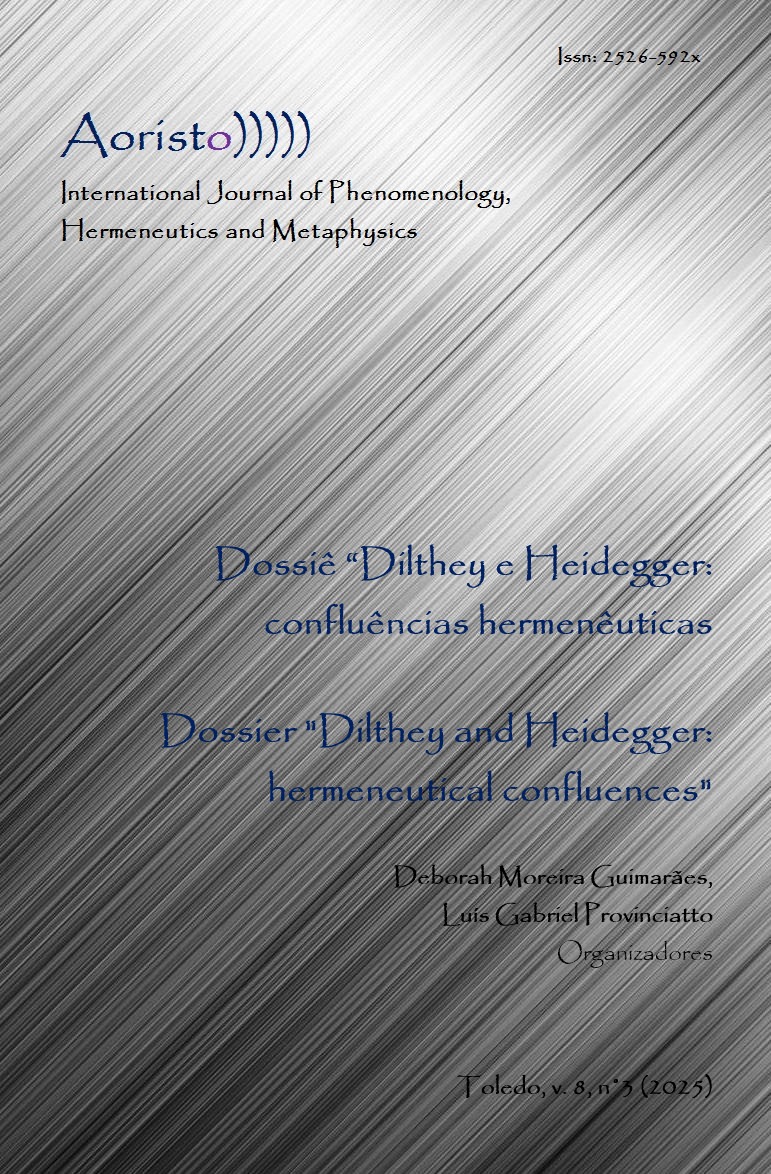Vivência, compreensão e fenômeno
a pontual apropriação de Dilthey e Heidegger na fenomenologia da religião de Van der Leeuw
DOI:
https://doi.org/10.48075/aoristo.v8i3.36333Keywords:
Fenomenologia, Religião, Ciências da religião, Método, Gerardus van der LeeuwAbstract
Este artigo procura evidenciar de que maneira Gerardus van der Leeuw (1890-1950), em sua obra Fenomenologia da religião (1933), cita e se apropria de ideias e conceitos pontuais de Wilhelm Dilthey (1833-1911) e de Martin Heidegger (1889-1976). A tarefa aqui assumida é dupla: a) identificar os diferentes autores e respectivas obras que dão sustentação à sua abordagem metodológica e epistemológica na obra supracitada; b) identificar, problematizar e interpretar o modo como Van der Leeuw volta sua atenção para passagens específicas da obra A construção do mundo histórico nas ciências do espírito (1910), de Dilthey, por um lado, e, de outro, de Ser e tempo (1927), de Heidegger. Com efeito, em Fenomenologia da religião, Van der Leeuw elabora seu modo próprio de entender e operar fenomenologicamente seu objeto de investigação, a religião, tratando-se, então, de apresentar e explicitar brevemente os conceitos de “vivência” e “compreensão”, segundo Dilthey, e de “fenômeno” e “fenomenologia”, segundo Heidegger, a partir dos dois livros citados e utilizados pelo fenomenólogo holandês.
Downloads
Published
How to Cite
Issue
Section
License

This work is licensed under a Creative Commons Attribution-NonCommercial-NoDerivatives 4.0 International License.
Copyright Notice
1. I grant the AORISTO – International Journal of Phenomenology, Hermeneutics and Metaphysics the first publication of my article, licensed under Creative Commons Attribution (which allows sharing of work, recognition of authorship and initial publication in this journal).
2. I confirm that my article is not being submitted to another publication and has not been published in its entirely on another journal. I take full responsibility for its originality and I will also claim responsibility for charges from claims by third parties concerning the authorship of the article.
3. I also agree that the manuscript will be submitted according to the Aoristo’s publication rules described above.
License Creative Commons
This work is licensed under a Creative Commons Atribuição-NãoComercial-CompartilhaIgual 4.0 Internacional, which allows you to share, copy, distribute, display, reproduce, in whole or in part, for as long as there is no commercial purpose, and authors and source are cited.


